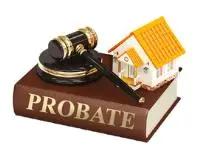
Latest News
What Do I Need to Know About Medical Aid in Dying in New York?
New York State. Governor Kathy Hochul has publicly announced her intent to sign the Medical Aid in Dying Act, which would allow certain terminally ill adults, under narrowly defined circumstances, to request and self-administer prescribed medication to bring about a peaceful death.

While the best elder law and estate plan is to have a valid health care proxy naming agents and a valid durable power of attorney naming an agent to make financial decisions, not everyone has done the proper planning. It is not uncommon for an elderly person to fall ill, be hospitalized and then need nursing home care with no time to plan.

Question: Who would inherit from an estate if someone dies without a will?

Question: My aunt recently passed away and I just found out that I was named executor of her Will. I really do not want to serve. Is renunciation an option; can I decline or resign from being executor?

When someone in New York State dies with a small amount of money, the family may be able to avoid probate by using a “1310”, or small estate affidavit. This affidavit may be used by certain family members or the decedent’s creditors to collect assets up to a certain value in the decedent’s sole name.

Question: My mother is a resident of Florida and owns a condominium and several financial accounts in her sole name. She also owns a summer home in New York that is titled in her sole name. If she were to pass away, what is the procedure to transfer the New York home after her death?

Question: Someone told me that assets with named beneficiaries are not subject to estate tax, is that correct?

Question: I was recently appointed Administrator of my uncle’s estate, but the Decree from the Surrogate’s Court said that I must post a bond. What does that mean?

The estate tax concept tax known as “portability” is permanent as a result of the enactment of the American Taxpayer Relief Act of 2012. Portability allows a surviving spouse to use a deceased spouse’s unused estate tax exclusion (up to $11.4 million in 2020/$11.7 million in 2021).

Question: My mother recently passed away and I received something in the mail called a “Waiver of Process; Consent to Probate”, what does this document mean?

Question: My loved one passed away and someone needs to clean out her home, who is in charge of that?





